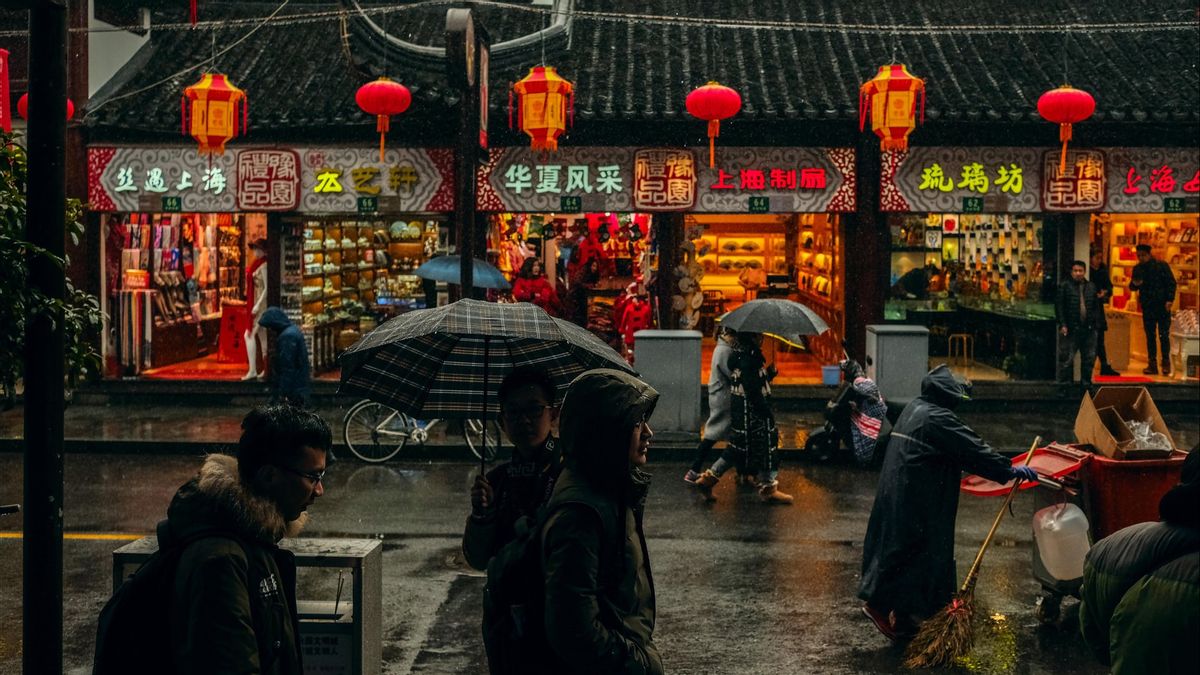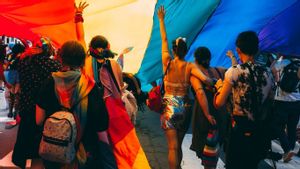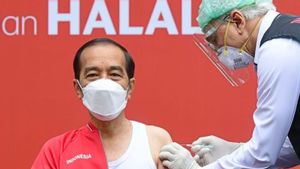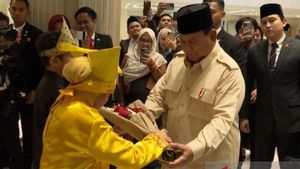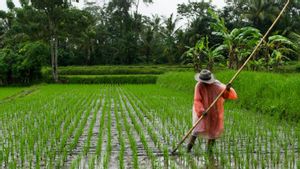JAKARTA - Chinese New Year is the most important holiday in China. This year, 2021, Chinese New Year will be celebrated on February 12. And this is the second time China celebrates Chinese New Year in the midst of the COVID-19 pandemic.
Bound to the Chinese lunar calendar, this holiday is traditionally a time to honor families, gods, and ancestors. This vacation time is also a time to bring the family together.
With the popular adoption of the Western calendar in 1912, the Chinese participated in celebrating January 1 as New Year's Day. However, nevertheless, China continues to celebrate the Chinese New Year which is synonymous with the greeting "Gong Xi Fat Cai".
Usually, at times like this, hundreds of millions of Chinese people will fill the roads, trains, and planes on their way to their hometown, or what is known in Indonesia as homecoming. They want to celebrate this special day with their family.

But this year the world's largest annual human migration has been put on hold. The Chinese government has called for avoiding "non-essential" travel during the holiday period to prevent a revival of COVID-19.
For many people who have left their hometowns for better job opportunities in big cities, the Chinese New Year holidays are the only chance to meet the family. The parents who left their children in the village or the children who left their parents in the village may have to take the bitter pill because this year they cannot meet.
Quoting CNN, China's National Health Commission imposed a new rule that requires people who have returned hometowns to have a negative COVID-19 test result taken within the previous 7 days. They must also spend 14 days of "house observation" upon arrival.

Even local governments have added their own stricter rules. For example, in some places, those who have just arrived hometown will need to spend two weeks in a government-approved quarantine hotel, instead of being watched at home with their families.
These restrictions sparked outrage on social media. Some people question government policies at a time when many are hoping to return home.
Second Chinese New Year in the midst of COVID-19
This is the second year of Chinese New Year celebrations in China in the midst of COVID-19. COVID-19 has claimed more than two million lives worldwide.
Last year, Beijing's main train station was filled with travelers before the Chinese New Year. At that time the Chinese authorities had not announced that the coronavirus could be transmitted from person to person.
They also have not acknowledged that the virus has spread outside the city of Wuhan, the epicenter of the initial spread of COVID-19 in China. Still a fresh memory when the city of Wuhan had to be locked up two days before the Chinese New Year celebrations.
But millions of people have returned to their hometowns in the weeks leading up to the holidays, which has accelerated the spread of the virus. After the holidays, many were trapped in their hometowns because travel restrictions prevented them from returning to the cities where they worked.

While this year's New Year holidays, the departure hall at Beijing Station is empty. The government's call for people to stay in the city where they work has been successful.
On the first day of the 40-day Spring Festival or 'chunyun' which fell on January 28 this year, Beijing International Airport experienced an 86 percent drop in departures compared to the same period last year. Across the country, the drop in airport passengers on the first day of chunyun was 71 percent compared to last year.
The Ministry of Transportation estimates 1.15 billion trips will be made over the 40-day Lunar New Year travel period this year, 61 percent less than 2019 and 22 percent less than last year. If the predictions are correct, it will be the lowest number of travelers during the Chinese New Year since 2003.
Propaganda?
The tightening on Chinese New Year stands in stark contrast to the last major holiday in October 2020. At that time many people thronged public transport and tourist attractions across the country.
Then, China has not reported any locally transmitted cases since mid-August. Both the government and the public believe they can control the virus.
Images of domestic tourists crammed into the Great Wall of China are prominently displayed in state media, as a testament to China's success in stemming COVID-19. This time, Chinese state media launched a very different campaign, thanking people for their decision not to travel as a form of their responsibility towards the country.
Sunday, the People's Daily, the mouthpiece of the ruling Chinese Communist Party posted what appeared to be a message on Weibo. "Every Chinese person has a special memory of their Spring Festival," it wrote.

"But this year, the Spring Festival will be different from before. Tens of thousands of people have chosen to stay for the Chinese New Year. Staying together is what will lead to better reunions in the future."
The post was flooded with angry comments. "Don't thank them. They all want to go home. And that is a right," said one netizen.
"The government has set countless barriers for those wishing to return home. They hurt the interests of the travelers to achieve the results the government wants. It is a shame that the government is proud of this," said another.
The next morning, all critical comments were removed. The People's Daily published another Weibo post with the same sentence, but it was also flooded with criticism.
"As state media, can you bend over to hear the voices of the people? Does your propaganda only serve to please the leaders? We all know we can't go home for the new year and feel bad about it, but you keep making sensations and keep talking about it. Who really wants to hear your 'thank you'?" said a comment, which was later also deleted.
Other National News
SEE ALSO:
The English, Chinese, Japanese, Arabic, and French versions are automatically generated by the AI. So there may still be inaccuracies in translating, please always see Indonesian as our main language. (system supported by DigitalSiber.id)
